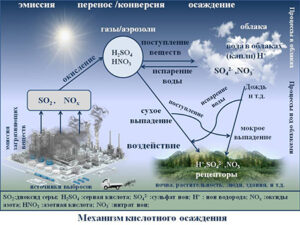 The International East Asia Acid Deposition Network (EANET) began its activities in 1998 as an intergovernmental cooperation program among countries in the region to obtain regular information on the role and distribution of acid deposition, pollutant deposition, and their impact on the state of natural ecosystems in eastern Asia. parts of the Asian continent and archipelagos in the western Pacific Ocean. Currently, 13 of 16 East Asian countries are participating in the EANET program: Cambodia, China, Indonesia, Japan, Laos, Malaysia, Mongolia, Myanmar, Philippines, Republic of Korea, Russian Federation, Thailand and Vietnam (https://www.eanet.asia).
The International East Asia Acid Deposition Network (EANET) began its activities in 1998 as an intergovernmental cooperation program among countries in the region to obtain regular information on the role and distribution of acid deposition, pollutant deposition, and their impact on the state of natural ecosystems in eastern Asia. parts of the Asian continent and archipelagos in the western Pacific Ocean. Currently, 13 of 16 East Asian countries are participating in the EANET program: Cambodia, China, Indonesia, Japan, Laos, Malaysia, Mongolia, Myanmar, Philippines, Republic of Korea, Russian Federation, Thailand and Vietnam (https://www.eanet.asia).
According to the order of the Government of the Russian Federation dated 01.09. 2012 No. 1601-r Roshydromet is determined to be responsible for the implementation of the EANET program on the part of Russia.
The main goals of the EANET program are:
implementation of long-term coordinated actions of countries to monitor environmental pollution to understand the state of the acid deposition problem in the East Asian region and assess ways to solve it;
providing information support for decision-making at the regional, national and interstate levels in order to mitigate the consequences and reduce the adverse environmental impact caused by acid deposition (“acid rain”);
ensuring scientific and technical cooperation between participating countries on issues related to acid deposition.
The management of the network and decision-making is carried out by the Intergovernmental Conference, consisting of representatives of government agencies responsible for environmental protection from all participating countries. Scientific, methodological and advisory activities for the operation of the international EANET monitoring network, data assessment and verification are provided by the Scientific Advisory Committee, represented by scientific and technical experts from the participating countries. To coordinate the work of the EANET network, a Secretariat has been created, whose functions are performed by the UNEP Office for Asia and the Pacific (UNEP ROAP, https://www.unenvironment.org/asia-and-pacific/restoring-clean-air/eanet), and the Network Center , operating at the Asian Center for Atmospheric Pollution Research
(ACAP, https://www.acap.asia/en/) .
The tasks of the Secretariat ЕАНЕТ (UNEP ROAP)
includes:
ensuring communication and coordination between participating countries, interaction with other international programs and initiatives in the field of monitoring;
organizing and conducting major EANET meetings, including Intergovernmental Meetings and Scientific Advisory Committee sessions;
ensuring the necessary administrative and financial management of Network resources;
together with the Network Center – ensuring capacity building and conducting activities to inform the public and decision-makers.
The tasks of the Network Center (ACAP) include:
providing scientific, methodological and technical assistance to countries participating in the program on organizing and conducting monitoring;
quality control of observational and analytical results;
generalization, evaluation, analysis and storage of all EANET monitoring data and accompanying information;
preparation of international reports on data, intercalibrations, information analysis.
There are 4 EAHET monitoring stations constantly operating on the territory of the Russian Federation: three in the lake region. Baikal under the leadership of the Limnological Institute of the SB RAS
(http://www.lin.irk.ru/international) – Irkutsk (urban), Listvyanka (regional) and Mondy (background); one, as part of the Primhydromet network, in the Primorsky Territory on the basis of the hydrological station “G-1_Primorskaya” (http://www.primgidromet.ru)
– Primorskaya (regional). Currently, only EANET stations provide results of regular monitoring of the content of pollutants in the atmospheric air outside cities in the Asian part of Russia.
The scientific and methodological center for the activities of the national network is located in the Federal State Budgetary Institution “IGCE”. Summarized materials obtained during the implementation of the EANET program on the Russian network are presented in the annual issues of the “Review of the State and Pollution of the Environment in the Russian Federation”
(http://downloads.igce.ru/publications/reviews/review2019.pdf). Information brochure (in English) “East Asia Acid Deposition Network (EANET)” can be downloaded from this link https://www.eanet.asia/wp-content/uploads/2020/04/EANET-Brochure-2.pdf.
Current version (as of 10/15/2021) translation into Russian

